Problem-Solving Skills Extra Challenge Geometry Worksheets for Ages 3-8
12 filtered results
-
From - To
Unlock your child's potential with our Problem-Solving Skills Extra Challenge Geometry Worksheets for Ages 3-8. Specifically designed to stimulate young minds, these worksheets help children develop crucial math and reasoning abilities. Each worksheet features engaging challenges that make learning about shapes, patterns, and spatial relationships exciting and fun. Tailored for various skill levels, these resources encourage independent problem-solving and critical thinking. Perfect for classroom use or homeschooling, our geometry worksheets offer hands-on practice that bolsters confidence and mathematical understanding. Help your child excel in math with our expertly crafted geometry problem-solving activities.
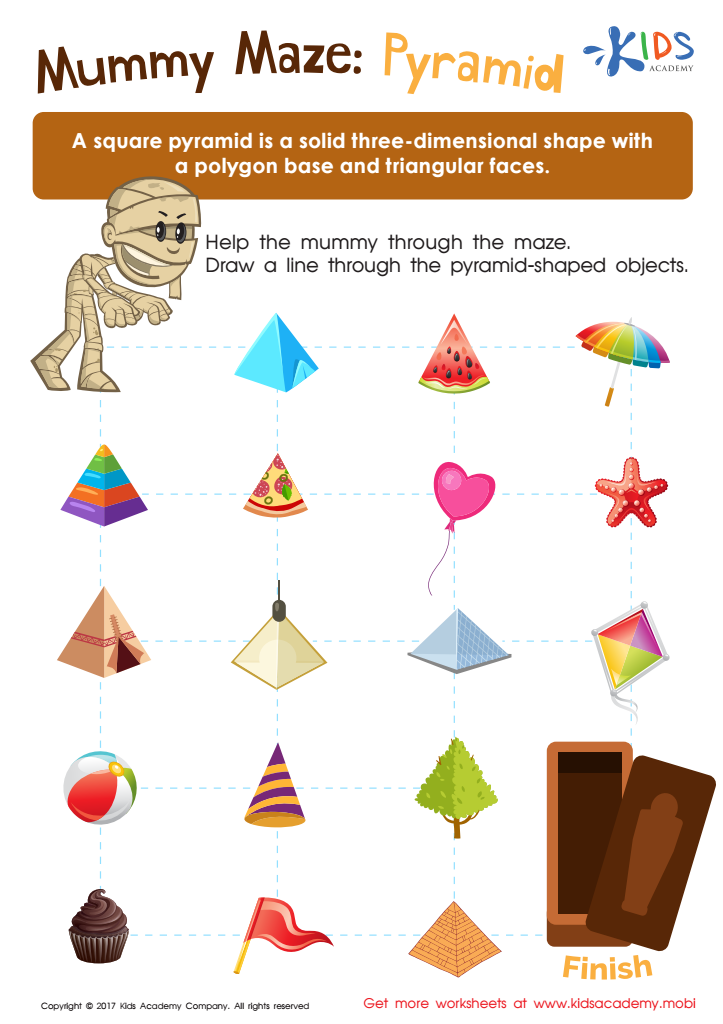

Mummy Maze: Pyramid Printable
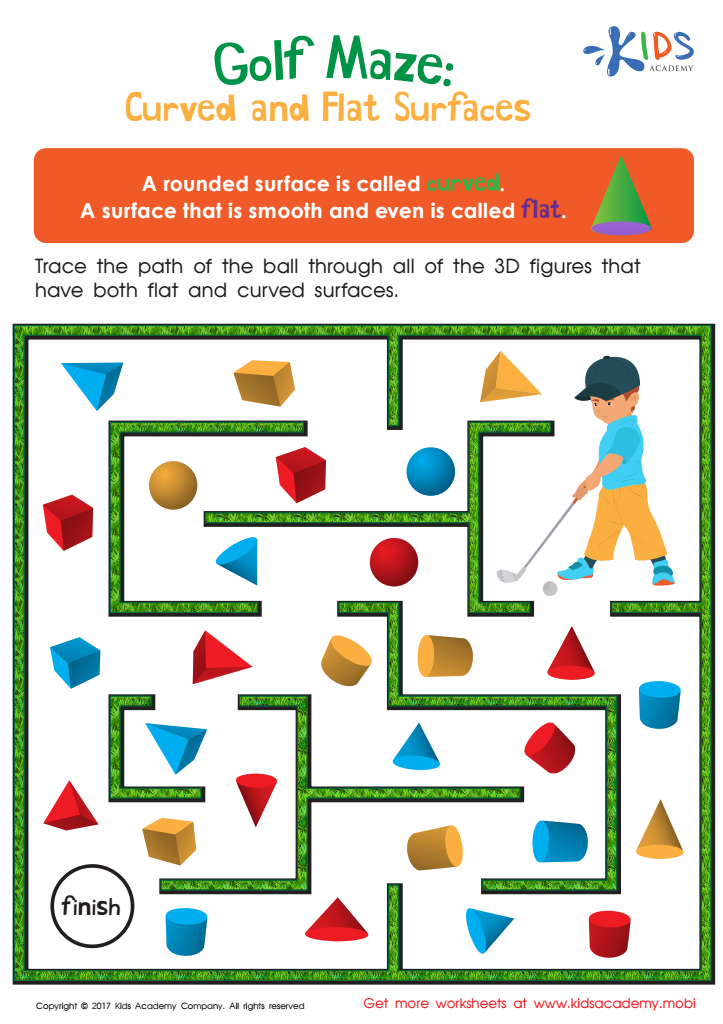

Golf Maze: Curved and Flat Surfaces Worksheet
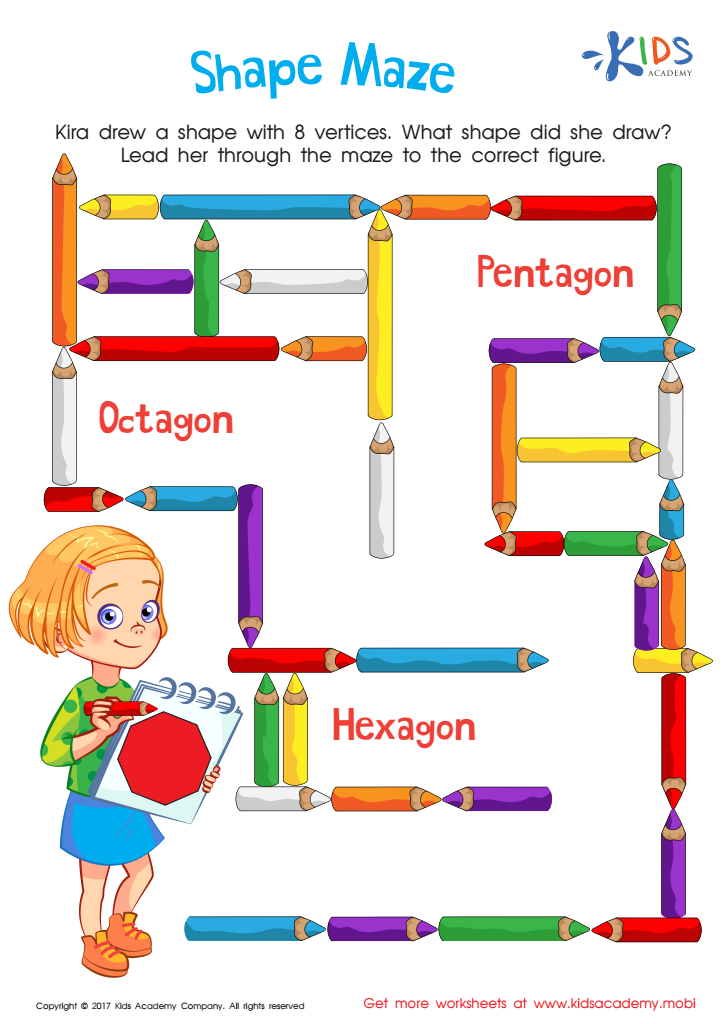

Shape Maze Worksheet
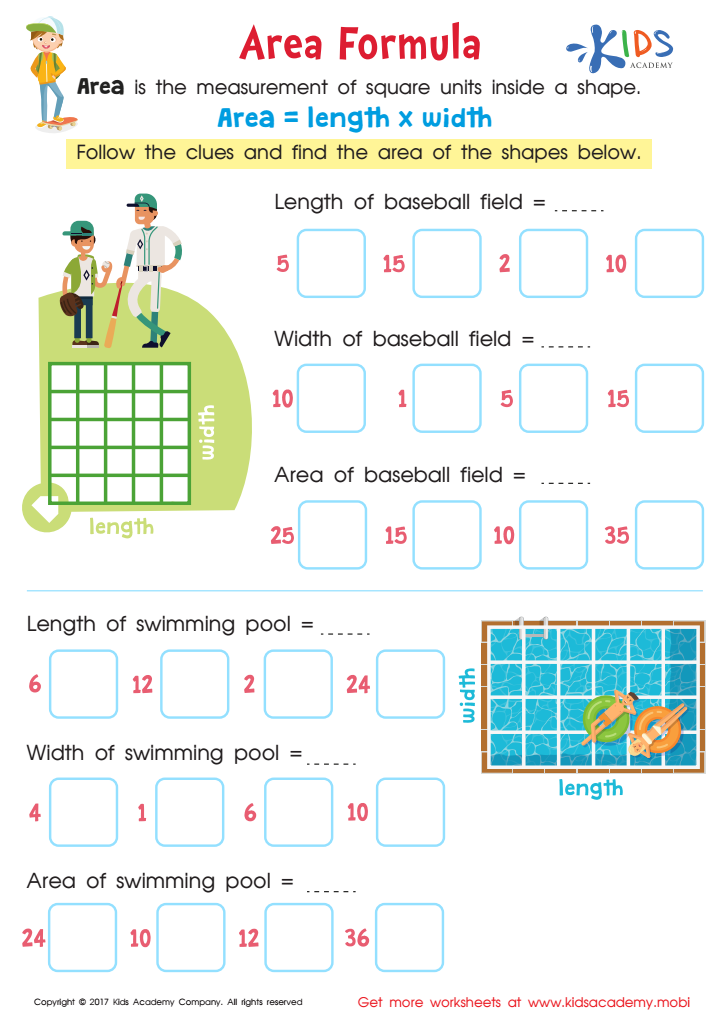

Area Formula Worksheet
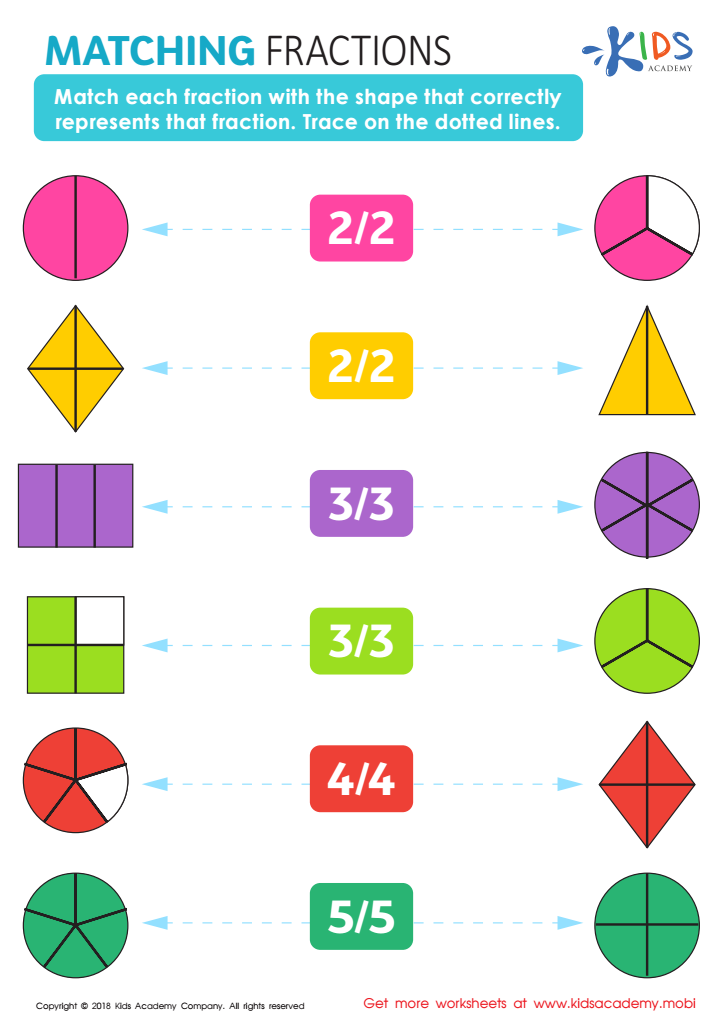

Matching Fractions Worksheet
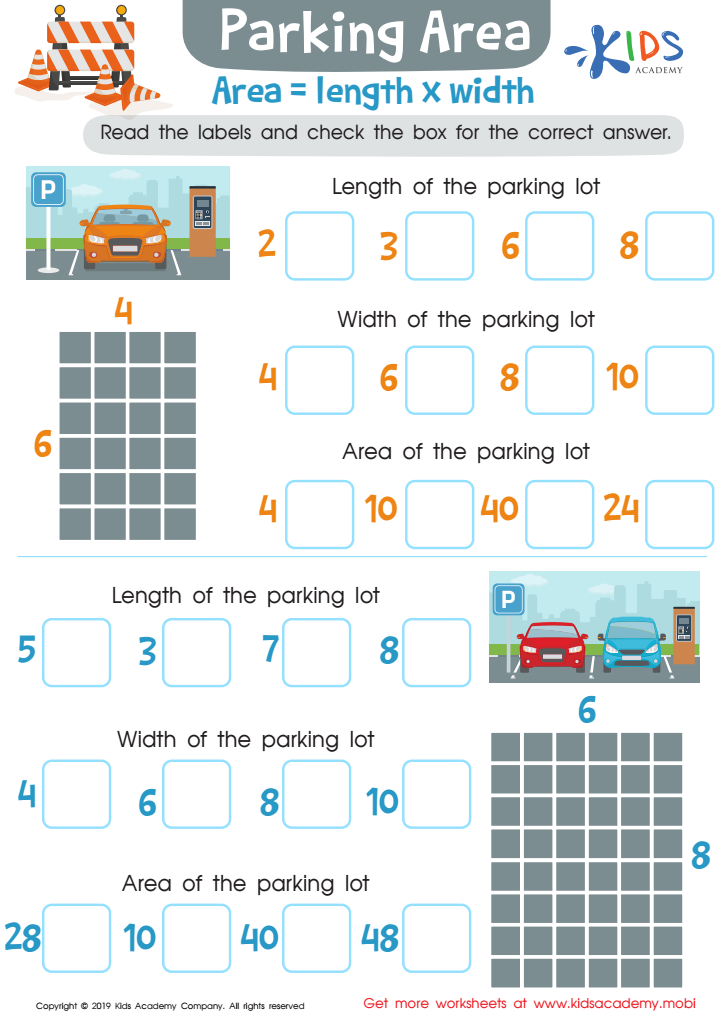

Parking Area Worksheet
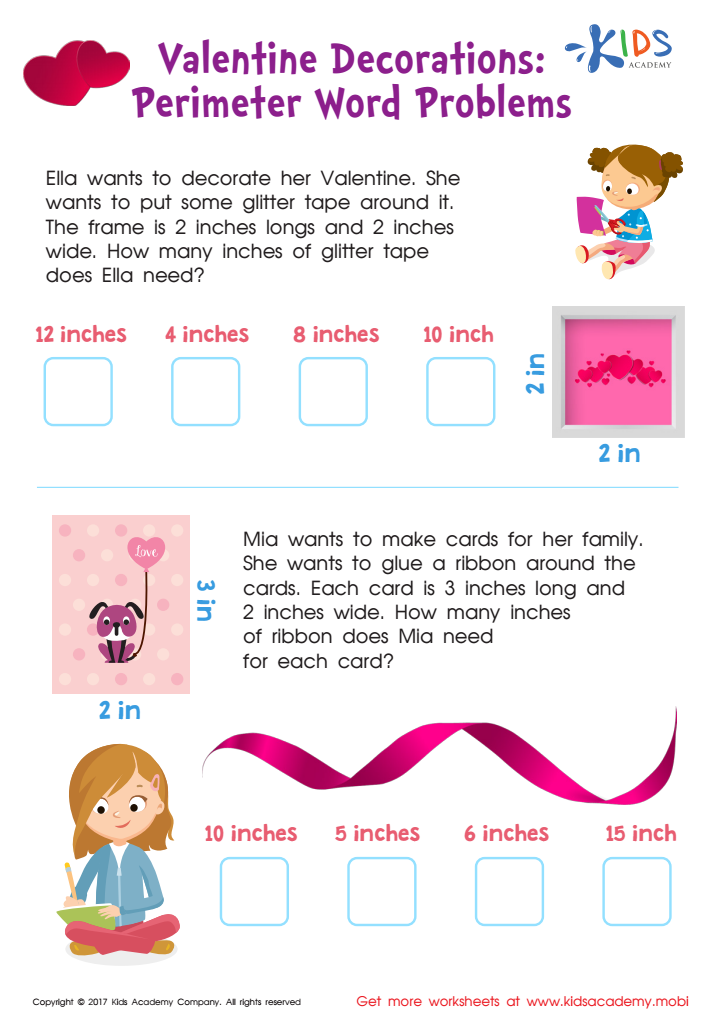

Perimeter Word Problems Worksheet
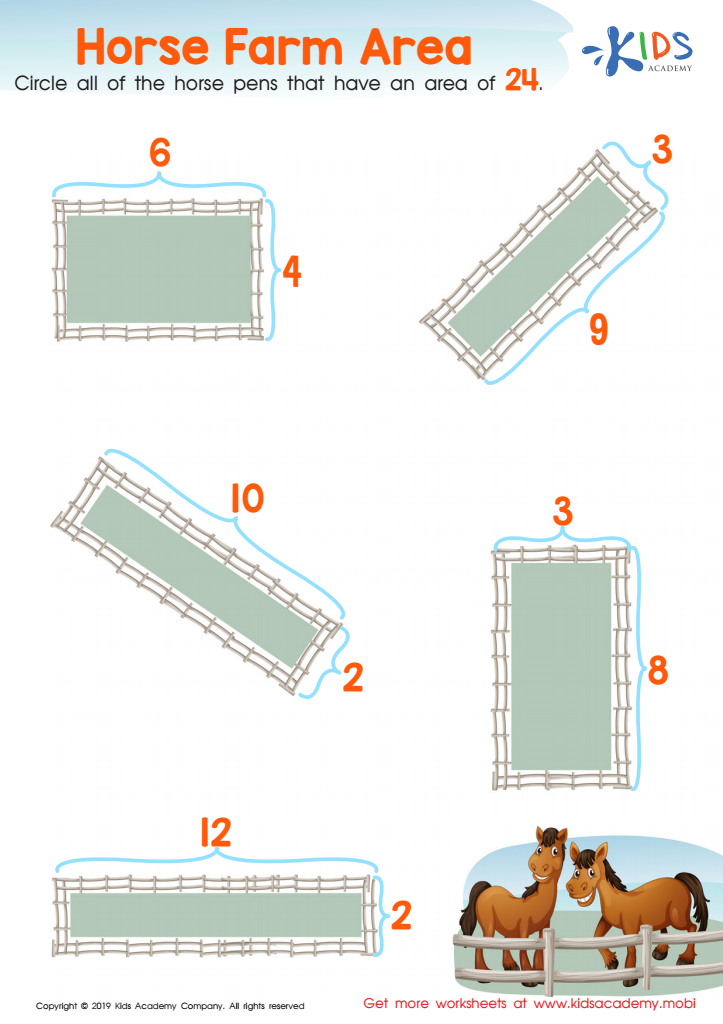

Horse Farm Area Worksheet
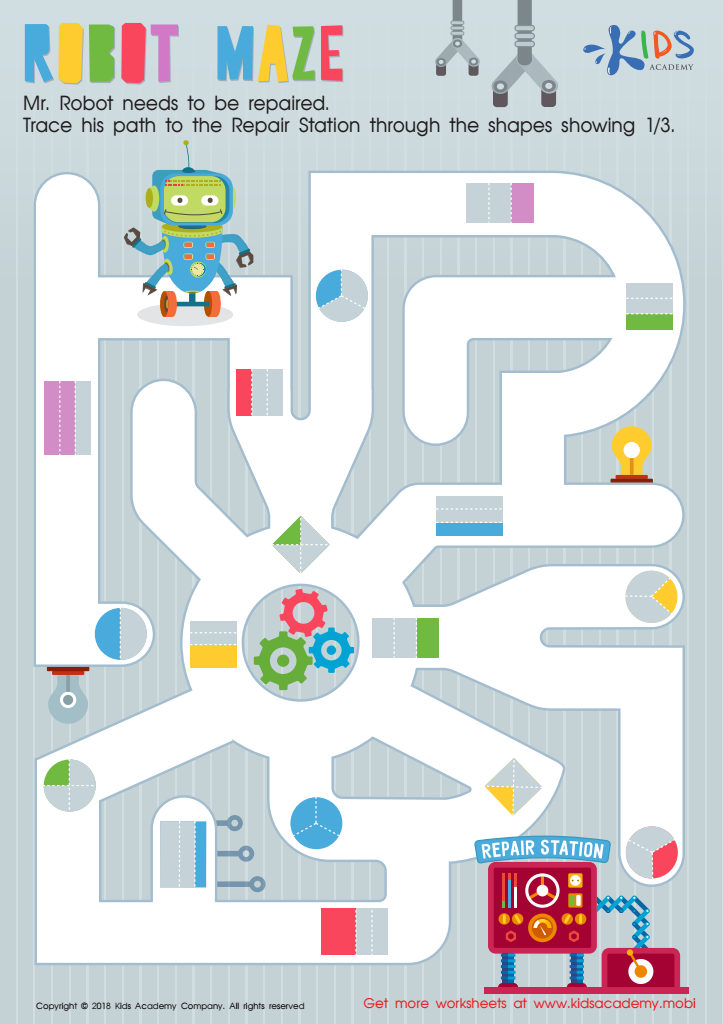

Robot Maze Worksheet
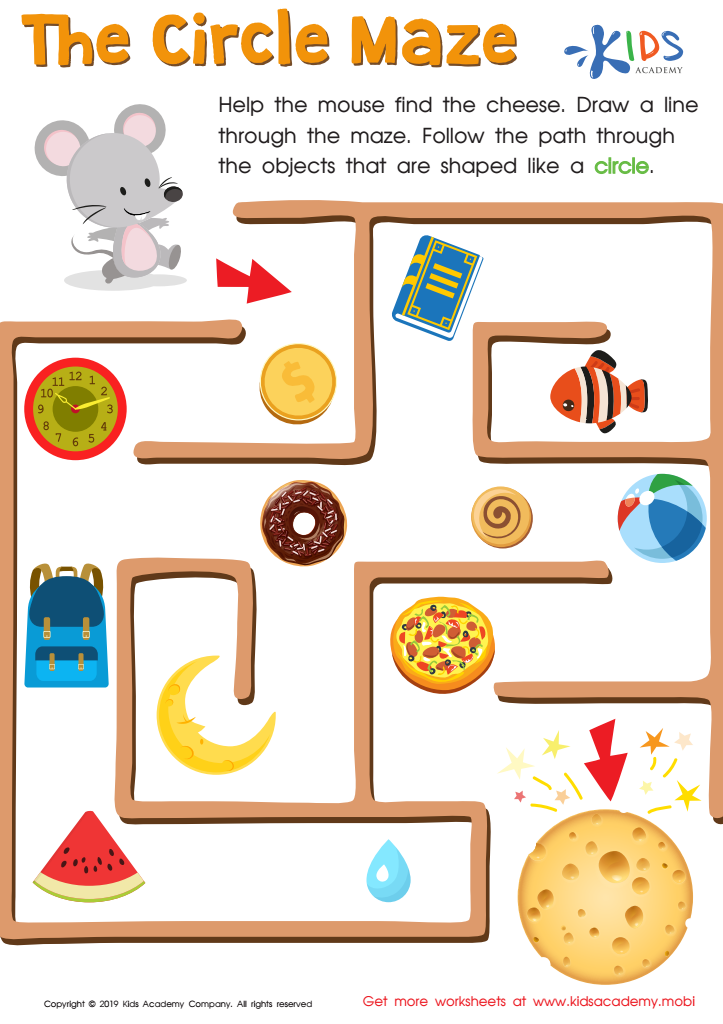

The Circle Maze Worksheet
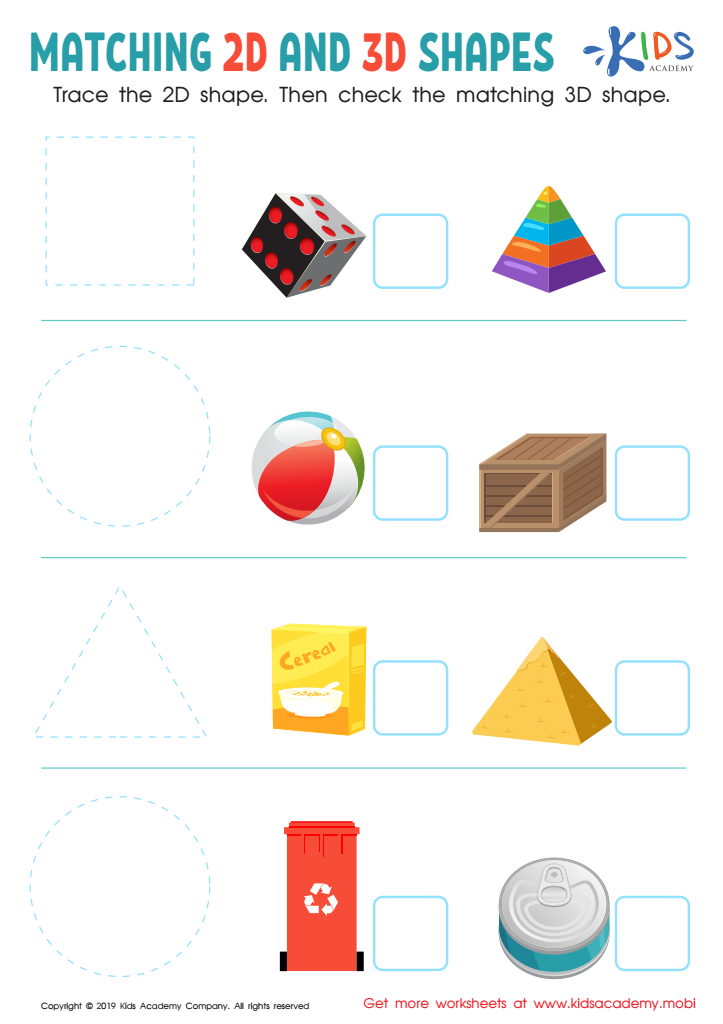

Matching 2D and 3D Shapes Worksheet
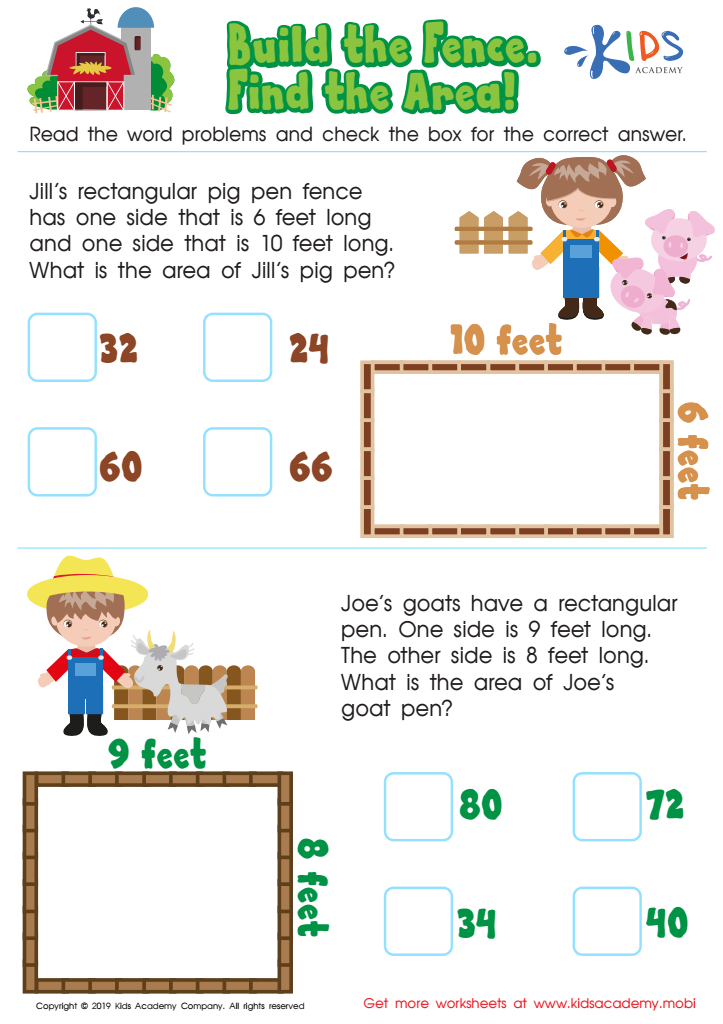

Build the Fence, Find the Area Worksheet
Developing problem-solving skills through geometry challenges for children aged 3-8 is crucial for several reasons. Firstly, problem-solving boosts cognitive development, enhancing a child's ability to think critically and logically about various situations. Engaging with geometric challenges strengthens spatial awareness, improving their understanding of how different shapes and spaces interact. This foundational skill is essential not only in math but in everyday life, influencing everything from navigating physical spaces to understanding patterns and structures.
Furthermore, introducing geometry at a young age fosters a growth mindset. Young children learn to approach problems with curiosity and persistence, viewing challenges as opportunities to learn rather than as obstacles. This positive attitude toward problem-solving can significantly influence their future academic and personal endeavors.
Socially, problem-solving activities encourage collaboration and communication. Through group projects and discussions, children develop essential interpersonal skills, learning to articulate their thoughts and consider others' perspectives. Emotionally, successfully tackling challenges boosts confidence and resilience, enabling children to handle more complex problems as they grow.
For parents and teachers, investing time in developing these skills early provides a strong foundation for lifelong learning and success. Therefore, incorporating geometry challenges for young children isn't just about learning shapes; it cultivates a well-rounded approach to navigate and excel in a complex world.
 Assign to My Students
Assign to My Students


















